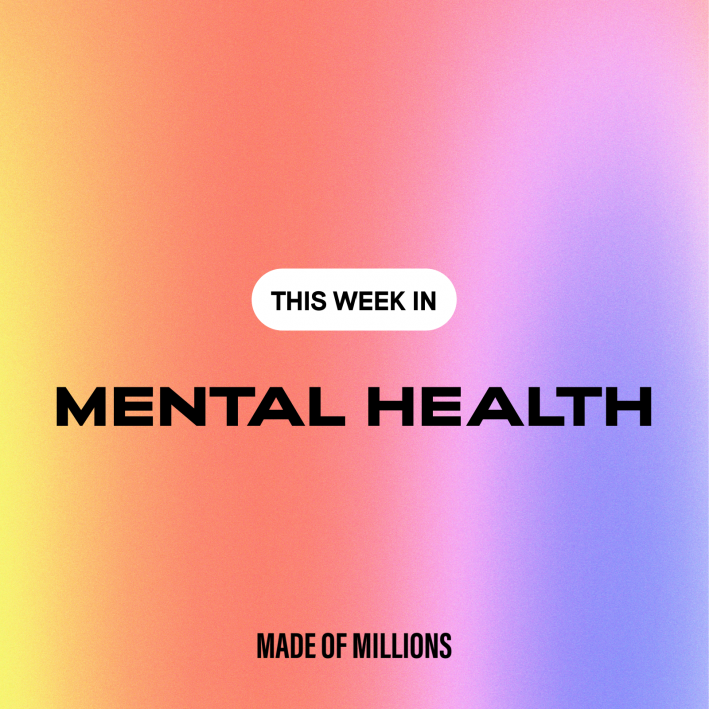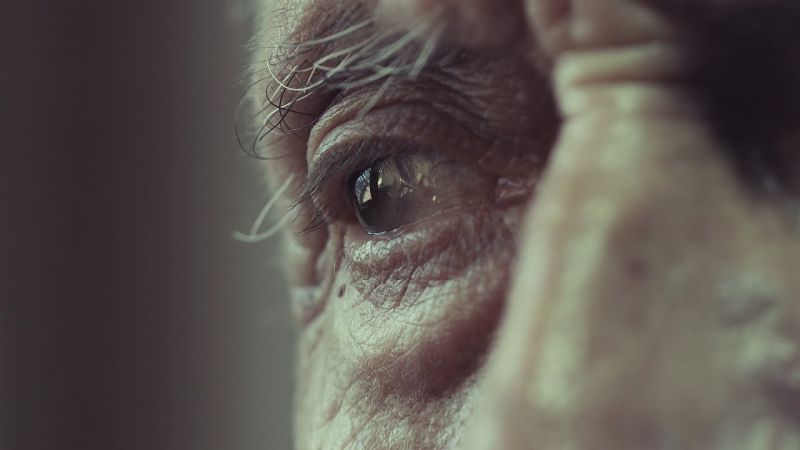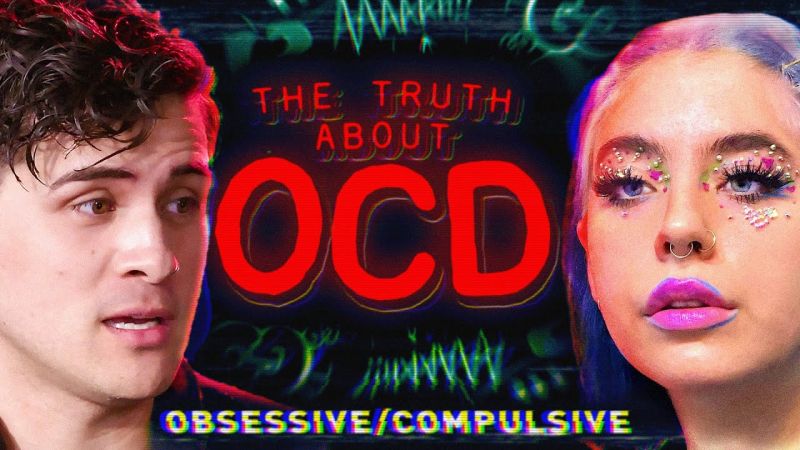This Week in Mental Health
The latest on research and advocacy for the week of January 11th.
Written by Esther Fernandez

01 Researchers continue developing new and better medication for OCD and Bipolar disorder.
02 Studies get us closer to more effective treatment, including new virtual reality technology and improving the US mental health system.
03 Country singer Luke Combs, USA women’s boxer Virginia Fuchs, Youtuber Anthony Padilla, and women’s basketball coach Joanne P. McCallie have important conversations about mental health.
Conversations about mental health have grown exponentially over the last decade, with more and more people committing to personal and collective wellness. While we have a ways to go before mental health awareness, education and treatment are accessible to all, each day brings new and positive strides within the field.
Our This Week In Mental Health series covers the latest happenings in research, treatment, human interest stories, and more. Stay updated on new developments so you’re better equipped to navigate the world, and most importantly, your own recovery.
Here’s what’s happening the week of January 11th.
MEDICATION
New OCD Treatment in Third Trial Phase
Biohaven Pharmaceutical Holding Company is now moving onto phase 3 of their trials for a potential new OCD treatment, troriluzole. The drug is, “a new chemical entity and modulating agent that normalizes glutamate.” Phase 3 will consist of approximately 600 patients from the United States and Europe. The Vice President of Research and Development and Biohaven, Loren Aguiar, mentions how about one third of patients with OCD do not respond to current available medication. If trials prove successful, this drug will be the newest treatment option for OCD in over two decades.
New Studies Suggest Limitations of Standard Drug Treatment for Bipolar Disorder
The most effective form of treatment for bipolar disorder is a combination of therapy and medication. For over 70 years, lithium has been the standard medication despite two-thirds of patients not responding to it. New studies suggest that low levels of LEF1 protein, a gene important to neuronal functioning, may be the reason for ineffectiveness for certain patients.
Ketamine Infusions Can Reduce PTSD Symptoms for Weeks at a Time, Researchers Find
A recent study had participants with chronic PTSD receive repeated ketamine infusions. A majority of the participants had 30% or more of their symptoms reduced within the second week, compared to other medications which can take months to show results.

Repeated Ketamine Infusions Reduce Symptoms in PTSD Patients
RESEARCH
Podcast Episode Summarizes Recent Studies on How Virtual Reality Can Help With Phobias, Anxiety Disorders, Etc.
Virtual reality treatment has become increasingly popular in recent years. Researchers are exploring different ways to address mental disorders through VR, with most studies so far focusing on anxiety-based conditions. Daniel Freeman, a Professor of Clinical Psychology at the University of Oxford, discusses how patients are able to virtually expose themselves to anxiety-provoking situations, and learn to manage anxious feelings more effectively.
Heightened Anxiety Linked to An Impaired Ability to Simulate Alternative Versions Of Past Events
A recent study asked 96 participants to answer an anxiety questionnaire, then write about regretful autobiographical memories that took place within the past 5 years. Patients with higher levels of anxiety used more negative words and gave fewer concrete details when recalling past events. The study suggests that those with anxiety struggle more with memory, and with thinking of alternate positive outcomes. Researchers are looking to confirm these findings at a clinical level.
Study Shows Changes Needed To Improve US Mental Health System
The RAND corporation studied ways that mental health can be improved in the United States, including “integrating behavioral health care into general health care settings, providing supportive housing to the homeless and promoting comprehensive mental health education.”
Researchers consulted with consumers, mental health advocates, researchers, clinicians, health system representatives, policymakers and payers. The study highlighted that only about 45% of people in the U.S. with mental disorders receive treatment, with BIPOC showing even lower numbers. The study also discusses how to make change at governmental levels, with the overarching goals of 1) promoting pathways to care 2) improving access to mental health care and 3) establishing an evidence-based continuum of care.
Talkspace Receives NIH Grants To Conduct Telepsychiatry Research
The telehealth platform Talkspace received two grants worth nearly 7 million dollars. The first grant will be used for a four year trial comparing the effectiveness of messaging and video therapy. The second will be used to study which patients benefit the most from teletherapy.
Food Insufficiency Linked to Depression, Anxiety During the COVID-19 Pandemic
A new study found that there has been a 25% increase in food insufficiency — the most extreme form of food insecurity — during the COVID-19 pandemic. People of color have been the most affected. Of the 63,674 participants in this study, about half reported symptoms of anxiety and depression. Amongst people experiencing food insufficiencies, those numbers can get as high as 89% for symptoms of anxiety and 83% for depression.
Computer Simulation Can Supplement Cognitive Tests Used to Evaluate ADHD Symptoms
Researchers are looking to expand ADHD testing using computer simulations. Cognitive tests often don’t capture the complexities of ADHD, such as the many factors affecting decision making. With multiple types of tests, as well as more observation-based studies, clinicians can diagnose the disorder more accurately.
ADVOCACY
Youtuber Anthony Padilla Covers OCD on His Mental Health Web series
With over 5 million subscribers, Youtuber Anthony Padilla has been highlighting different mental disorders on his channel, such as schizophrenia, borderline personality disorder, and Tourette’s syndrome. In his latest episode, he interviews people with OCD, breaks down stigmas, clarifies misconceptions, and uncovers more about the reality of the disorder.

I spent a day with people w/ OCD (OBSESSIVE COMPULSIVE DISORDER)
Country Star Luke Combs Opens Up About His Anxiety and OCD
Multi-platinum award winning artist, Luke Combs, is famous for songs like “When It Rains It Pours” and “Beautiful Crazy”. On The Big Interview With Dan Rather, he shares his experiences with anxiety, in particular Pure OCD.
Houston Boxer Virginia Fuchs Details Her Personal Battle With OCD
Captain of the USA women’s boxing team, Virgina Fuchs, opens up about her OCD and how she struggles with themes like contamination. She discusses why she is an advocate on social media for dispelling misconceptions about OCD, and how boxing has been a positive outlet for her.
Former Michigan State Women’s Basketball Coach Joanne P. McCallie Talks About Her Experience With Bipolar Disorder
At the age of 30, McCallie was diagnosed with bipolar disorder while beginning her career in coaching. For 28 years she kept her diagnosis a secret. Although her career soared, she was struggling tremendously at home. The pandemic finally drove her to share her story. Her new new book, ‘Secret Warrior: A Coach & Fighter, On and Off the Court” comes out February 16, 2021.
Support our work
We’re on a mission to change how the world perceives mental health.



















